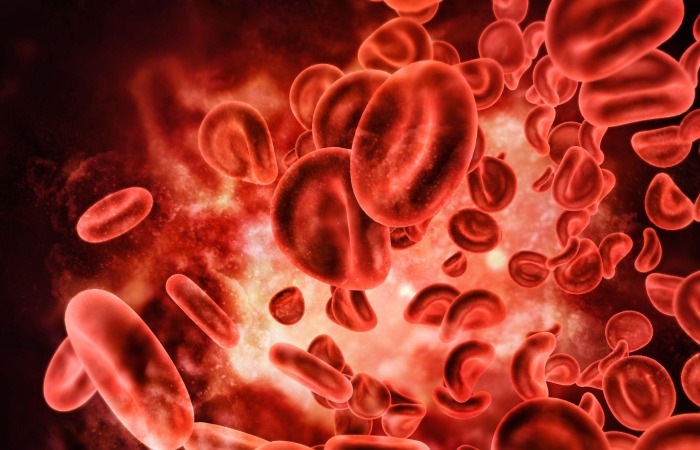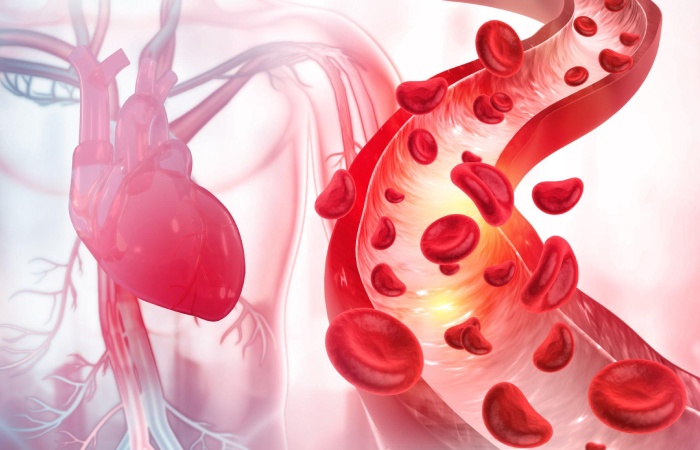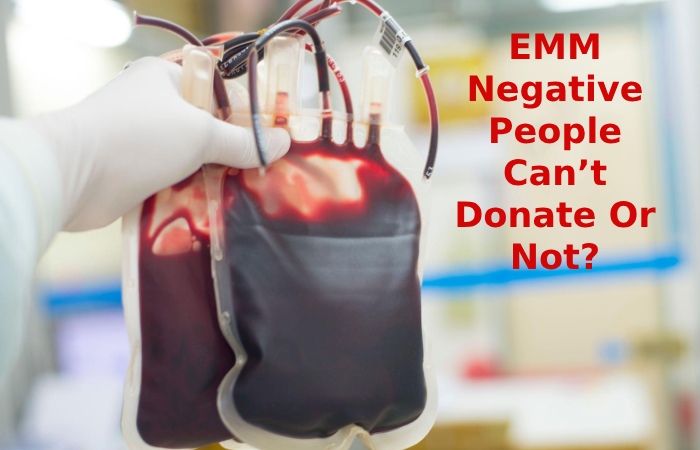Intro
This article is about the negative rare blood group found in Rajkot Man 11th such case worldwide. In the case of last year, a 65-year-old Rajkot, Gujarat, man needed blood for cardiac surgery. However, the medical staff could not identify the patient’s blood type. People with these scarce blood types cannot donate or receive blood from others. Just 10 of these people stand out from others because they don’t have the EMM high-frequency antigen in their blood. Only nine persons in the globe have the rarest blood type today, but a 65-year-old man from Rajkot, Gujarat, has been found to have it.
About EMM – Rare Blood group

The Emm-negative blood group is a scarce blood type, with only ten known cases reported globally before this study. Here, we present the 11th case of the Emm-negative blood group, identified in a 32-year-old female patient. This review provides a complete analysis of the case, discusses the clinical implications of this rare blood group, and compares the presented case with the previous ten documented instances. The study aims to contribute to understanding the emm-negative blood group and provide guidance for its management in transfusion medicine.
Overview Of Blood Groups
Blood groups are definite by the presence or absence of antigens on the surface of red blood cells (RBCs). While the ABO and Rh systems are the most well-known, more than 300 blood group antigens have been identified. The emm negative blood group is a rare blood type characterized by lacking the Emm antigen, which belongs to the Dombrock blood group system (DO). The ART4 gene encodes the Emm antigen, and its absence can lead to immunological reactions in transfusion settings.
Methods

The 32-year-old female patient presented to the hospital with severe anemia. Blood samples bought for laboratory analysis, including complete blood count (CBC), blood typing, and antibody screening. Further investigations use molecular and serological techniques to confirm the Emm-negative blood group.
Results
The patient was predictable as having the blood type AB RhD-positive. Initial blood group antigen serological assays revealed a negligible response with anti-Emm. The absence of the Emm antigen, which was working by a homozygous mutation in the ART4 gene, was confirmed by molecular analysis. Only ten additional cases of the Emm-negative blood group were found in the entire body of literature, making this the 11th known case globally.
How Did Doctors Identify The Negative Rare Blood Group Found In Rajkot Man?

- After suffering a heart attack, the 65-year-old patient undergoing treatment in Ahmedabad required blood for heart surgery. However, when his blood type did not originate in the Prathama Laboratory of Ahmedabad, the samples were sent to the blood donation center in Surat, said Sanmukh Joshi, a doctor at Samarpan Blood Donation Center, Surat.
- After analysis, it got a purpose that the sample did not belong to any particular group, and blood samples from the older man and his family members were sent to America for testing. The older man’s blood type was later exposed to be the rarest blood group in the world and the first in India. The ISBT – International Society of Blood Transfusion has designated it as EMM-negative because there is no EMM in the blood.
- During therapy, it reveals that the patient had an unusual blood type EMM-negative. There are four main types of blood: A, B, O, or AB. There are 42 other blood system kinds, including the Duffy, A, B, O, and Rh varieties. Additionally, 375 distinct types of EMM include significant levels of treatments.
Opinion of Medical Director Ripal Shah Regarding Negative Rare Blood Group Found In Rajkot Man

- According to Ripal Shah, Medical Director of Prathama Laboratory in Ahmedabad, after a cross-check with 40 to 50 samples the facility had on hand, the patient had the AB+ blood group. “We searched every avenue in India to find a blood match for him. His blood had a peculiar smell about it, I thought. We also contrasted his blood with blood samples from his kids. But, even so, it didn’t work out”.
- Consequently, the blood sample sends to New York. However, they were unable to choose for more than a year. The process got delayed as a result of the COVID-19 pandemic. Shah claims that as they waited, the physicians gave him medication to raise his hemoglobin level. as reported by Rajkot Updates.
- But, news, Despite the patient’s hemoglobin level increasing, the surgeon could not proceed since the patient was unprepared. As a result, he was COVID-19-infected and went away peacefully a month ago.
Some Features Of Emm-Negative Blood

The Emm red blood cell (RBC) antigen has been designated 901008 in the high-incidence antigen 901 series of the International Society of Blood Transfusion (ISBT). EMM Negative A Rare Blood Group Found In Rajkot Man 10th Such Case Worldwide initially discovered in 1973, anti-Emm was originally identified in 1987 in four unrelated people who shared a widely reactive RBC alloantibody, or proband.
At present, eight Emm probands of various ethnicities got identification. Most patients were men who had IgM and IgG antibodies without having previously encountered allogeneic RBCs. The lone transfusion recipient reportedly experienced a clinically severe acute hemolytic transfusion response.
Due to a somatic mutation in phosphatidylinositol glycan A (PIGA), anti-Emm does not react with RBCs from people with paroxysmal nocturnal hemoglobinuria (PNH) type III, which lack glycosylphosphatidylinositol (GPI)-anchored proteins. According to this finding, Emm is usually on a GPI-linked protein. Through post-translational modification in the endoplasmic reticulum (ER), more than 150 proteins are GPI-anchored.
EMM Negative People Can’t Donate Or Not?

Blood donations from people with the EMM-negative blood group are not accepted. They are unable to take anyone’s blood. Professionals say that if a person even receives blood from someone from the same group, the chances of reaction inside the body multiply and could prove fatal.
Implications for Blood Transfusion Matching and Medical Science
The blood type EMM-negative’s rareness highlights the importance of knowing the variety of blood types and the consequences of matching blood transfusions. The accuracy of identification of the blood type and matching is crucial in ensuring the security and efficiency of blood transfusions and finding extremely rare.
Doctor Sanmukh Joshi’s Words About This Rare Negative Blood
Sanmukh Joshi, the doctor at Samarpan Blood Donation Centre, Surat, said the 65-year-old man was undergoing treatment after a heart attack. He needed blood for heart surgery. Moreover, his blood group did not match with others in the laboratory. Hence, his blood samples transfer to the Surat blood donation center for further examination.
Significantly, the blood group did not match with any of the existing groups. For detailed analysis and investigation, the sample sends to America. There it observes that the person does not have EMM high-frequency antigen in his blood.
Conclusion
Hence, In transfusion medicine, the rarity of the Emm-negative blood group poses difficulties. On the other hand, if they receive Emm-positive blood, patients with this type may acquire anti-Emm antibodies. Thus, resulting in hemolytic transfusion reactions (HTRs). Therefore, it is essential to identify Emm-negative blood donors and screen for anti-Emm antibodies in these individuals.
The discovery of the eleventh instance of the Emm-negative blood type advances our knowledge of this uncommon blood type and its therapeutic implications. However, more research and collaboration between blood banks and healthcare organizations are needed to ensure the proper management of these patients, including the identification of Emm-negative blood donors and the creation of recommendations for transfusion therapy.
Related posts
Featured Posts
What Is A Web Project? – Phases For Planning, and More
Introduction Web Project The term ” web project ” can designate different development types, including technical creation, content management, data,…
10 Benefits of Eating Roasted Gram
In this article, we will talk about the 10 benefits of eating roasted gram. The roasted gram is also known…


